#like. man can do comedy man can do rom-com man can do deep melodramas man can do tragic war movies man can do thriller
Explore tagged Tumblr posts
Text
obsessed with how so many of shin ha kyun's roles are either (1) the silliest sluttiest guy you've ever seen or (2) deeply fucked up guy who is hitting 200 mph on his way to becoming even worse or (3) a combination of the last two. man found the roles he likes the most. real of him
#caroline talks#shin ha kyun#i'm obviously oversimplifying all his roles#because in all seriousness i'm so deeply amazed by the sheer versatility he has as an actor#like. man can do comedy man can do rom-com man can do deep melodramas man can do tragic war movies man can do thriller#but also. i do adore whenever shin ha kyun plays a deeply fucked up character who's just like 'yes. i will be committing a crime now#and i will look so insanely hot while doing it. and make a bunch of silly people question their morals for it.'#like. good for him.
45 notes
·
View notes
Photo
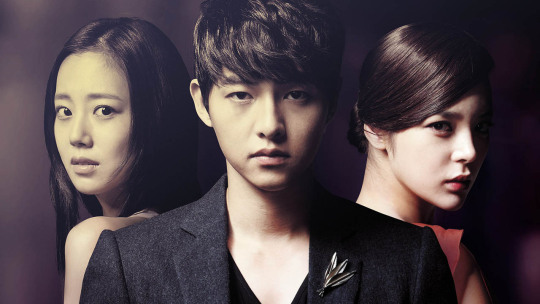
My Top 10 Oldie KDrama List: KDrama’s that you should have watched, and better get to it.
10. Innocent Man/ Nice Guy: I’m not much of a melodrama kind of girl but this drama had some amazing writers. This was your typical revenge story that got you confused and frustrated with what the main characters intentions were. I was most impressed with the writing of this screenplay. The dialog between the characters were just so deep and heart wrenching. As a writer and an avid fan of screenplay writing this was like heaven. This storyline in particular played with your heart but you wanted more. More Song Joongki that is. This drama really made me fall in love with Song Joongki and I don’t regret watching such a dramatic storyline.
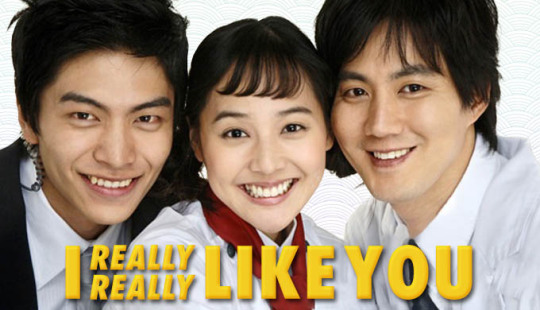
9. I Really Really Like You: An oldie but a heartfelt story. Country bumpkin meets city boy. The love triangle in here will make you frustrated. I mean what love triangle doesn’t. But I was really frustrated that we were as unsure as to who the main lead was and who second lead was. Thankfully I was satisfied with the end result. Lee Minki was the highlight in the drama, he play a stupid jerk but ultimately a softy at heart. Honestly, if they didn’t have his character I don’t think I would have watched and finished it. I can tell you this, I cried. (Evil laugh as I move on to the next.)
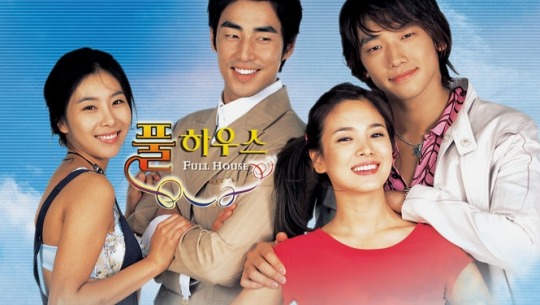
8. Full House: This is a classic. The all-time marriage contract, living together, celebrity romance story. This drama has a special place in my heart because it sort of inspired me to start writing. Song Hyekyo’s character was a writer and the whole drama was pulled from an online story itself. I was like “I’m going to write my own story and hopefully someone will see it and want to make it a drama too!” Ahhh, what a young mind I had. But seriously I wouldn’t mind seeing this drama being remade because the story is such a classic. But it has to be good. Not like Full House 2. (Such a disappointment…)
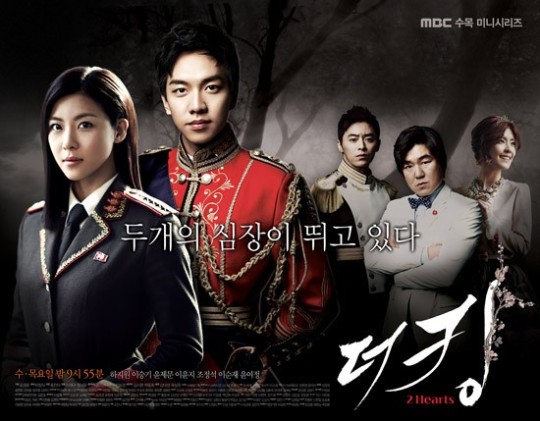
7. The King 2 Hearts: Fantasy drama’s like this where there are Kings and Queens are always good. It can come off as cheesy but this one was pretty good with all the political topics. The creepy parts were creepy and the sweet parts were sweet. Han Jiwon’s character was so cute and lovely with a side of bad ass chick, which she always does well. It was frustrating that it took time for Lee Seunggi’s character to love her though when it does start to work out, it’s like the nation just gained another powerhouse couple. The side characters story were good too, especially the sister and bodyguard. Let’s just say there were some water works here too. (Muahahaha…)
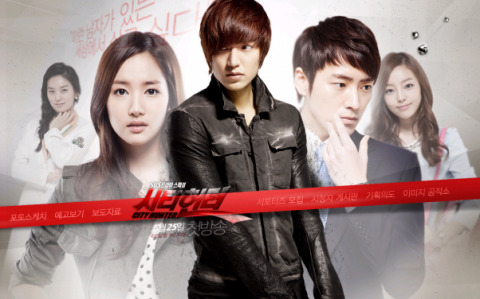
6. City Hunter: I think this might be the only Lee Minho drama I actually like. No, it’s not this might, this is the only one I like with him. This was a melodrama with action. The Korean Robin hood story with a revengeful past. I love romance stories, but I appreciated that this wasn’t so romance heavy and more on the lines of what the actual story is. The hype was real whenever he went to go do his missions and I loved how the detective/lawyer was always one step behind him. Thank goodness there was no love triangles and thank goodness the girl was not always a damsel in distress, just slightly, not all the time.
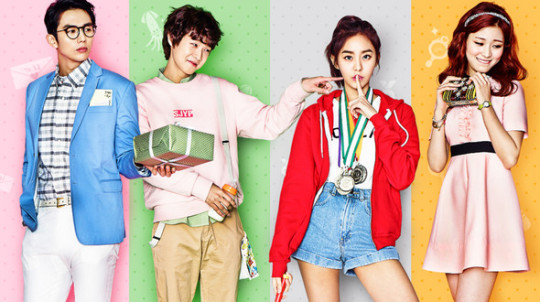
5. Hogu’s Love: One of my favorites and not too old. Choi Wooshik was the perfect Hogu. I swear I want a boyfriend who would love me just as much as Hogu. His character was just the sweetest and the most loving. This drama also put some serious subject in light, such as rape and homosexuality, which I commend the writers and director for telling a story like this. I mean I would have liked the issue to end certain ways too, but I guess it just showed the reality of society. All in all this drama made me happy and Hogu will always have a special place in my heart.
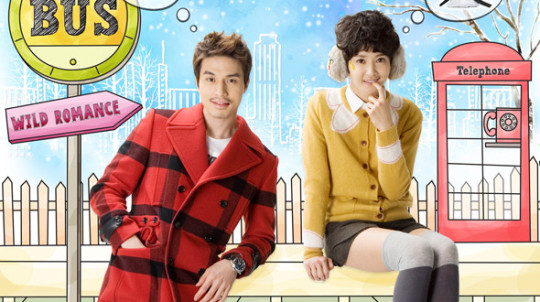
4. Wild Romance: Lee Dongwook needs to do more dramas like this. He’s a serious actor, but roles like in this drama are so nice to see him play. He is an amazing actor in general. This is a rom-com with a little suspense. The comedy in here made the eerie parts smoother to watch because it would be so funny you forget that it was creepy just a minute ago. I love the main couple together, they make the perfect team. Jessica, former GG member is in here too. And as much as I don’t like her, I don’t like her even more in this drama. Did I forget to mention that some of these characters have mental issues? Yeah.
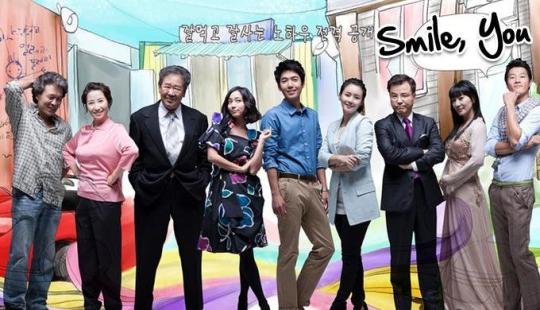
3. Smile, You: One of my all-time favorite family dramas. This was probably the first 25+ episode drama I had ever watched and it was amazing how much I enjoyed watching it. The story revolves around two families that can’t stand each other but are forced to try to live under one roof. The main couple fall in love unintentionally and stir up more trouble in the house. Of course all the family members have to have a say in the relationship and create even more drama. Your typical overly protective mother in law, ridiculous father in law, and grumpy grandfather.
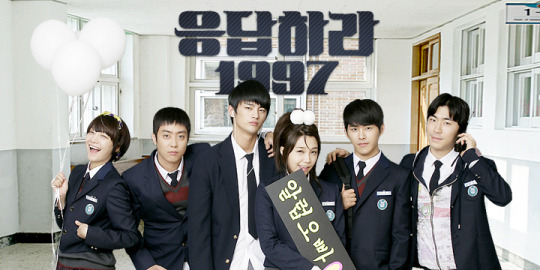
2. Reply 1997/ Answer Me 1997: As a big time k-pop fan girl I connected to these characters so much it became a favorite. This is such a heartwarming story about friendship, first loves, and growing up. Jung Eunji and Seo Inguk were just the cutest couple ever. They portrayed the perfected besties turned boyfriend girlfriend. Everyone from the friends to the parents where such amazing characters. I loved it so much that it was hard for me to accept the other series, 1994 and 1988, but these writers just have a way with telling such amazing stories that though they were different stories, I fell in love with them once again. I’m not sure if they’ll continue the series. If they do I would love to see an early 2000 story.
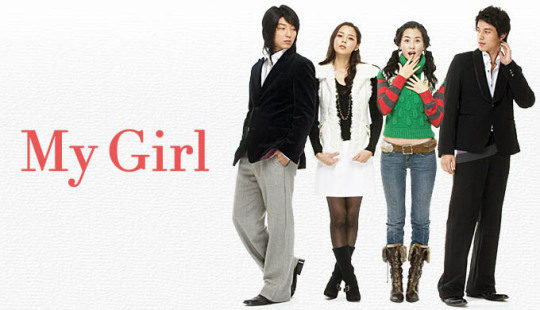
1. My Girl: My ultimate favorite drama. A Hong sisters drama. A drama that I can watch over and over again. This was probably the first drama that I ever watched fully and understood. I was about 10 or 11 when it came out. Just the right age to fall in love with Lee Dongwook I guess. Hahaha!! But really, I consider Lee Dongwook my first love. I still love him. This drama made drama real. From the tearful goodbyes to the overly dramatic symphony playing in the background. This was when Lee Junki still looked like a girl and his long hair was prettier then Lee Dahae. The we’re secretly in love, but fake cousins, rich boy poor girl drama. Watch it and see why I love this drama.
Honorable mentions: Goong (Princess Hours), Sweet 18, Dalja’s Spring, My Lovely Sam Soon, Jewel in the Place, Master’s Sun, What Happens To My Family, Creating Destiny
1 note
·
View note
Text
Better Late Than Never: 19 Must-See Movies from 1999
via WordPress ift.tt/2HJ5MjA
From 19 movie lovers to one other, here are some of our favorites from 1999.
We get a lot of emails here at Film School Rniejects, and while most of them are split pretty evenly between people curious if Kieran Fisher is a “real” person and others asking Christopher Campbell, Esq. for nudes, some are actually complimentary enough towards the site to count as fan letters.
One such example came to us recently from a young woman in the UK hoping to celebrate turning 19 years old with a writing project about movies released in 1999. Her plan was to watch or re-watch films from that year and then write about each of them whether she connected with the movie or not. As a fan of FSR and One Perfect Shot she asked if we could offer a few suggestions as to what we consider to be the must-see movies of 1999.
“Hi, I figure this email is a long shot but I’d really love your help. My name is Ellie, I’m 18, a complete film geek and I could not live without Film School Rejects or One Perfect Shot. I’m starting a project that involves me trying to watch new or rewatch 19 films from 1999 by the time I’m 19 on June 2nd and I would really love any suggestions that I can add to my list. I know its small, but this project means a lot to me and I’d love to complete it and write up about all of them, whether I’m passionate about them or whether I detest them. It would mean the world to get some help on this.
Thank you thank you thank you!
Ellie
London, United Kingdom”
The smart, easy, and nice thing to do would have been for one of us to dash off a quick list of 1999’s best films so she’d have it in time for her birthday. Unfortunately, we here at FSR prefer to complicate things and miss deadlines whenever possible, so instead of a short list we’d like to present Ellie with 19 picks from 19 members of our team. Some might seem obvious, others less so, but it’s most definitely a broad spectrum highlighting not only our staff’s eclectic tastes but also the absolute wonder that is cinema’s breadth and scope.
We write about movies because we love movies (and because Disney pays so damn well for positive Marvel coverage, but that’s a bit off topic so forget I even said it), and we’re equally excited by any opportunity to share that love with others. There are so many amazing films out there, and like everyone else, we’re still discovering new favorites every day.
So happy belated birthday Ellie! We apologize for the tardiness of our reply, but hopefully you find something new to appreciate from our picks and that they add to your already growing love for the movies. (And, yes, we did add a bonus pick for an even twenty to get a jump on your 20th birthday…)
10 Things I Hate About You (directed by Gil Junger)
Perhaps the last great teen movie of the 20th century, 10 Things I Hate About You made its debut in 1999. It’s essential viewing for any rom-com fan, but especially for young women. Kat (Julia Stiles) is a badass feminist lead unlike many we see in romantic comedies who accepts an invitation to prom from class mystery man Patrick (Heath Ledger). There’s miscommunication, true love, and a Shakespeare enthusiast. The soundtrack is the perfect time capsule of 1999, but it still rocks today. It’s a fun and adorable movie I adored when I was nineteen! – Emily Kubincanek
All About My Mother (directed by Pedro Almodóvar)
Us film writers have a bad habit of using “melodrama” like it’s a dirty word. The thing is, melodrama is most often used as a crutch—blatant appeals to viewers’ emotions made in an attempt to distract audiences from other shortcomings. It takes a skilled filmmaker to remind us of how wrong we are in conflating melodrama’s potential with the underwhelming contents in which it is most often seen, and Pedro Almodóvar is perhaps the preeminent master of melodrama working today. Todo Sobre Mi Madre (All About My Mother) is stuffed to the brim with plotting straight from a soap opera, expertly condensing the twists and turns one might expect from an entire television season into less than two hours. Gorgeously vibrant and filled with innovative cinematography that will stick in your brain long afterward, the film is a much-needed reminder that melodrama and great cinema can absolutely be one and the same. And that you should always look both ways before crossing the road. – Ciara Wardlow
Analyze This (directed by Harold Ramis)
What is the best way to understand film genre? Apart from actually sitting down and immersing oneself in its finest examples, the answer is clear: genre parodies! An overlooked classic is Harold Ramis’ Analyze This. One sentence summary: Robert De Niro plays a mob boss and Billy Crystal is his psychiatrist. It’s a ton of fun! Also, it’s a thoughtful satire, one that raises deep questions about our understanding of masculinity, especially in films about Italian-American men. In Goodfellas, De Niro plays a mobster completely devoid of emotion; here, he plays one who struggles to admit he has emotions because he believes doing so would make him weak. It’s well-worth your time, plus, if you like it, there’s a sequel! – Will DiGravio
Audition (directed by Takashi Miike)
By the time you read this, Takashi Miike’s filmography will have surpassed 100 directorial outings and some change. The Japanese maverick is a workaholic who’s willing to make any project he gets offered, though when you look at the eclectic array of titles in his oeuvre, what you see is some of the boldest and most daring cinema of the last 20 years. Audition, which is based on Ryu Murakami’s novel of the same name, is one of his foremost masterworks, as well as an example of J-horror at its smartest and most sadistic. It tells the story of a widower who’s looking to get back into the dating game, but he gets more than he bargained for when he meets a woman with a mysterious past and a willingness to go the extra mile. Part romantic comedy, part stomach-churning nightmare, Audition serves as the perfect introduction to Miike’s demented world, and it’ll either make you want to delve in further or avoid it forever. – Kieran Fisher
The Blair Witch Project (directed by Daniel Myrick & Eduardo Sánchez)
Found footage movies get a bad wrap. Look, I get it. After the – ahem – foundational film The Blair Witch Project made its splash debut at Sundance Film Festival, screening at midnight to an unsuspecting crowd, studios every year have attempted to cash in on this low-cost way of filmmaking. But when done right, this POV format elicits a cinema verite quality that we so rarely see in the horror genre. And that’s what makes Blair Witch work so well. It just feels real. And in a time when the internet was just becoming what it is today, it was easy for the studios to really capitalize on that and make audiences believe that it was real. From the website that the filmmakers set up to the Sci-Fi Channel “documentary” The Curse of the Blair Witch that ran the week before the film released, they essentially made not only the first Augmented Reality game but also an immersive experience. Watching the film you feel like you are in the Black Hills Forest with Heather, Mike, and Josh slowly losing your sanity as the claustrophobic woods send chills down your spine. And when the woods finally come alive, the terror feels real. In a decade that was full of glossy excess, the simplistic DIY quality of The Blair Witch Project made it a breath of fresh air. This film didn’t have beautiful 20-somethings, pretending to still be in high school, running away from a hook hand or a ghost mask, this was a fear of the unknown. What’s right behind the door, or down that dark corridor. What we can’t even begin to comprehend, for fear we go mad. Often imitated, but never duplicated: The Blair Witch Project is real old-school horror. – Jacob Trussell
Dick (directed by Andrew Fleming)
After nearly 20 years, I still can’t believe Dick hasn’t become at least a cult classic. This movie has so many hilarious performances from its mix of Kids in the Hall and Saturday Night Live cast members, including Bruce McCullough and a not-yet-famous Will Ferrell as iconic journalists Carl Bernstein and Bob Woodward. Ryan Reynolds is here pre-fame, as well. The political satire mashed with teen comedy stars Michelle Williams and Kirsten Dunst on the edge of their transitions from child actresses to Oscar and Emmy worthy talents, and that’s a perfect spot for them to be in while they play bubbly girls in the midst, almost Forrest Gump-like, in one of America’s most notorious scandals. It’s a hip, lampooning introduction to the Nixon Administration and Watergate for young audiences with a wonderful portrayal of Tricky Dick by Dan Hedaya, and it’s a light and entertaining take on political corruption and the well-worn story of becoming disappointed with heroes and leaders. – Christopher Campbell
Election (directed by Alexander Payne)
Hear me out: Tracy Flick did nothing wrong. Over the years, Reese Witherspoon’s portrayal of an uncannily chipper, type-A teen who will stop at nothing to become student body president has been hailed as both a cultural icon and monstrous villain – but as a profoundly dorky and overachieving teenage girl who first saw Alexander Payne’s Election when I was Flick’s age, I’ve always felt a deep kinship with her. Matthew Broderick is disarmingly convincing as its (unreliable) protagonist, a beloved teacher who can only see Flick as a vindictive seductress after an affair with his married colleague (a situation we’d recognize today as statutory rape). In retrospect, it seems to occupy a strange in-between era of teen-media canon – its sour, biting portrait of high school politics takes after the pitch-black wit of Heathers, and yet its earnest idiosyncrasy also recalls later, weirder works like the great American Vandal. It’s the rare kind of comedy whose sense of humor is dazzlingly sharp and yet never feels mean-spirited. – Aline Dolinh
Eyes Wide Shut (directed by Stanley Kubrick)
Stanley Kubrick’s final film is a salacious peekaboo exploration of the sexual desires hidden within the minds of our significant other. We recognize the deep, dark secrets that lurk inside our own fantasies, but we dare not ask our partners what delights they crave. What’s the password? You do not want to know. Eyes Wide Shut peels the curtain back on the lust that fuels humanity. The film is made all the more dangerous by casting real-life married couple (at the time anyway) Tom Cruise and Nicole Kidman in the roles of the husband and wife reeling from the revelations laid bare after one admits their carnal wants. Their bedroom confrontation is an exposed vein that the audience both recoils from and salivates towards. We should not be privy to such horrendous intimacy. Kubrick’s passing and the prudish controversy surrounding the centerpiece orgy marred the initial response to the film. The longer I’ve sat with Eyes Wide Shut, the more time it has wormed its way into my relationships. Don’t wonder what’s going on in your lover’s head. Ask. Or suffer the torment. – Brad Gullickson
Fight Club (directed by David Fincher)
Before it became a stereotypical Film Bro signpost, this fantasia of runaway masculinity was a pulsating, bloody, controversial revelation. An essential entry into the filmographies of Brad Pitt, Edward Norton, and Helena Bonham Carter, it was also the movie that gave David Fincher his biggest early push toward his current label as a modern auteur filmmaker. Love it or hate it, Fight Club is a pop cultural touchstone, referenced for its quotable dark humor, brutal offhand violence, anti-Capitalist ideology, and above all else, its wildly surprising ending. First and foremost, though, I think Fight Club is an example of what filmmaking can look like at its most technically brilliant. It was the movie that made me fall in love with the aesthetic side of cinema, the technical aspects which separate film from other mediums of storytelling. As with Fincher’s later works, Fight Club makes use of sounds and sights, colors and cuts that flow seamlessly together, fluid and visually dynamic, to create a rich and distinctive moviegoing experience. – Valerie Ettenhofer
Galaxy Quest (directed by Dean Parisot)
1999 was a simpler time on the verge of being more complicated. It undeniably had its eye to the future, but its special effects and grasp of a swiftly changing technological landscape haven’t all aged amazingly. Galaxy Quest actually holds up surprisingly well, but it does make for interesting viewing 19 years later. In 1999 the internet was still a new phenomenon, not yet a place where everyone and their dog had an opinion on your favorite sci-fi show. The film’s main plot, that an alien species have mistaken a tv show for reality, is inherently clever and funny, but seen from 2018, when all-consuming fandom is more visible than ever, it doesn’t feel quite so… otherworldly. That’s what makes it obligatory viewing for the end of the millennium — now officially older than its long-canceled titular show, it offers a prescient view of the world that it almost certainly didn’t intend. It’s a time capsule of accidental speculation. It’s also a fun space adventure with a lot of heart and Alan Rickman, so if you’re not in the mood for reflecting on how the world has changed drastically since your birth, you can still have a great time. – Liz Baessler
Girl, Interrupted (directed by James Mangold)
There truly aren’t many films exploring the motives and psyches of teenage girls, but alongside other 1999 releases such as 10 Things I Hate About You and The Virgin Suicides, Girl, Interrupted furthered the presence and dimensions of young women on-screen. In classic Winona Ryder style, she undertakes the role of an interesting, intellectual, and misunderstood adolescent, namely Susanna Kaysen, an eighteen-year-old who has found herself admitted to a mental institution following an overdose. She finds the women around her (an incredible supporting cast in the form of Brittany Murphy, Elisabeth Moss, and Clea DuVall) both relatable and frightening, revealing the inner prejudices she holds within herself. The real challenge Susanna faces, however, is the charisma and allure of sociopath Lisa Rowe (Angelina Jolie’s Oscar-winner, and an icon on every teen’s Tumblr dashboard circa 2012). Underneath the powerhouse cast and vivid identities, however, is a focus on mental illness and coming-of-age that makes Girl, Interrupted a seminal piece for anyone trying to navigate their place in the world. Susanna is the narrator of the story in place of the audience’s inner monologue, skipping with us through the highs, and tugging us out of the lows. It shows, frankly, that with therapy, recovery is possible. It also emphasizes the importance of friendship and the solidarity of women, providing a depiction of troubled teenage years with an absorbing and truthful force. – Anya Hudson
The Iron Giant (directed by Brad Bird)
When Brad Bird’s directorial debut about a boy and his giant robot from outer space hit theatres on August 6th, 1999, it was a critical success. But Warner Brothers hadn’t had the first idea how to advertise it, and it opened in ninth place at the box office. And in all fairness, The Iron Giant doesn’t exactly fit into a marketable mold. That’s one of the film’s strengths. It’s based off a children’s story that Ted Huges wrote to comfort his children after the suicide of his wife, Sylvia Plath. It’s a Norman Rockwell-inspired political parable about a young boy befriending a metal monster who, despite his programming, doesn’t want to do harm. It had something to say about fear-mongering, violence betting violence, and the cost of peace—and it said all these things without talking down to young viewers. At its core, The Iron Giant is a story of empowerment, not as myth or destiny, but as a choice. You are who you choose to be. You can be gentle, you can defend, and you can be kind. You can be superman. – Meg Shields
Magnolia (directed by Paul Thomas Anderson)
Magnolia is significant in the 1999 canon for several reasons. It is arguably Paul Thomas Anderson’s best film. It has an ensemble cast that rivals some of the best actors and actresses of our time. And frankly, it contains one of the best performances from Tom Cruise. That alone would be a feat, but Magnolia is an untraditional epic that proves that nothing is written in stone. Anderson uses a short story to present audiences to the idea of strange phenomenon. An unsuccessful suicide turns into a murder by the most unlikely circumstances. That is the theme that runs through Magnolia, unlikely circumstances. Donnie Smith (William H. Macy) was a former quiz show winner whose moment of fame passed him by. The man who hosts that show, Jimmy Gator (Philip Baker Hall), has his own issues as he is slowly dying from cancer. And these two are connected to other members in the cast through coincidences. Anderson has waned back and forth on whether Magnolia is his masterpiece, but regardless of opinion, there is no denying the power of the film. Add in an iconic score by Aimee Mann — and did I already mention Tom Cruise’s performance? — and you have a movie experience quite unlike any other. – Max Covill
The Matrix (directed by The Wachowskis)
Notice how in almost every action movie there will be a slo-mo fight sequence where the protagonist is dodging bullets left and right? You can thank 1999’s The Matrix for that. Though, admittedly, later films may not exactly do it justice. Moving past those iconic visual effects (known more familiarly as “bullet time”, undeniably made most famous by The Matrix though it can be found in its predecessors) this movie is a wild ride that defined the action genre for years to come. The use of sophisticated fight scenes, heavily featuring a martial arts fighting style as per its Hong Kong cinema influence, along with incredibly complex and unique worldbuilding, The Matrix has firmly secured its spot in pop culture legend. What’s more, Keanu Reeves shines as hacker-turned-rebel against the machines, adding sci-fi badass to his already notable film career. His journey as Neo takes you from sympathizing with his 9 to 5 struggles (a good juxtaposition, as the side gig as a career cyber-criminal was probably less relatable) and seeing apart of yourself in a character going through the gray-tinged motions of a salaryman, to wanting to be him. Who wouldn’t want an alluring, mysterious stranger to plunge you into the realities of a dystopia, introducing you to a cyberpunk cult who gives you the choice to change your perception of the world forever? It seems much more appealing in The Matrix, I promise. The Wachowskis’ most famous achievement, this is a film much better viewed than dissected, particularly at the risk of revealing an amazing semi-plot twist. It’s more than just a pop culture phenomenon, still able to stand tall in 2018 as the perfect combination of action film technique and sci-fi storytelling prowess. While the gothic, cyberpunk look of the costumes and character style may admittedly date itself, the core and general appeal of the movie hold strong. Where else can you find Reeves entering a technological-underworld, filled with the expected futuristic elements coupled with a grungy exterior⎯ while also battling cryptic agents and practicing kung-fu. – Kendall Cromartie
The Mummy (directed by Stephen Sommers)
Two sequels, four Scorpion King spin-offs, and an ill-fated reboot may have diluted the Universal Mummy brand, but Stephen Sommers’ original summer blockbuster is still as ruggedly charming as its lead. Brendan Fraser is at the peak of his dopey charm here, and Sommers rips off Indiana Jones with freewheeling ease, forgoing scares in favor of all manner of swashbuckling adventure, complete with a climactic sword fight with an undead army. There’s no sweaty cinematic universe-building to be found in The Mummy, just good old-fashioned grave-robbing fun. – John DiLillo
Peppermint Candy (directed by Lee Chang-dong)
There are plenty of light and fluffy movies I love, both from the US and elsewhere, but my heart belongs to darkness. (On the screen at least… I’ll stick with light and fluffy in real life.) South Korean cinema is better than most at scratching this particular itch, and Lee Chang-dong’s beautiful but devastating look at his own country’s recent history does it in brilliant fashion. Like the more well-known Irreversible from three years later, Peppermint Candy magnifies the story’s drama and emotional effect by playing out in reverse chronological order. We start with a broken man screaming on a train track as the locomotive rushes toward him, and we work backward through his life to the young idealist he once was. It’s a personal tale of one man’s disappointment, but the events he experiences also tell the story of South Korea’s own growing pains as a young democracy. It’s a smartly crafted punch to the heart, and it’s one of 1999’s best films. – Rob Hunter
Ratcatcher (directed by Lynne Ramsay)
Too often in conversations of a year’s best films are international works forgotten. For this reason, if you’re looking at 1999 in movies, Scottish writer-director Lynne Ramsay’s feature film debut Ratcatcher is a must-see. The film is set in 1973 and tells the story of James, a young boy living with his family in a run-down housing scheme in Glasgow during the city-wide garbage strike, leaving the already dilapidated residential units in worse conditions ever. By exploring the minutiae of the sensitive James’ daily life, Ramsay creates a film that delivers an incredibly thoughtful and powerful meditation on ever-relevant themes of poverty, guilt, secret-keeping and human connection. – Madison Brek
Ravenous (directed by Antonia Bird)
It’s been a slow climb to respectability for Bird’s 19th-century cannibal classic. Universally panned on its release – the film was called a ‘stupid black comedy’ and ‘material that’s often better suited to a Monty Python skit’ – Ravenous has slowly risen in the esteem of horror fans and earned a spot as one of the better horror films of the last 20 years. And for good reason: not only does Ravenous feature the kind of onscreen talent normally reserved for high-profile chamber pieces, it also contains one of the most memorable soundtracks of any decade, a pop-infused cacophony of period instruments and chanting (co-written by Blur and Gorillaz frontman Damon Albarn). Equal parts black comedy and superhero-horror hybrid, Ravenous is the kind of movie that was meant to get better with time. Here’s to the cavalcade of anniversary pieces already scheduled for next spring. – Matthew Monagle
The Straight Story (directed by David Lynch)
There’s art-damaged David Lynch, there’s network TV David Lynch and even big studio David Lynch, but what if the best David Lynch is the one that Disney randomly bought at Cannes the summer of ’99 and which remains the director’s only G-rated entertainment? Shot along the route that notable Iowan Alvin Straight took by lawnmower to see his brother over in Wisconsin a few years before, The Straight Story tells this tale with the kind of look-in-your-eye sincerity that Lynch had for so long only been able to perform in various tediously ironic costumes. Richard Farnsworth, a stuntman who once played Matthew in Anne of Green Gables, is Straight, exalted here as an ordinary joe stubborn to the progress of time and old wounds. One finally triumphs over the other when Straight decides to reconcile with an estranged brother two states away, who appears, as-who-else but longtime chum Harry Dean Stanton. Because of Straight’s decimated vision, the local Man tells him he can’t drive and god knows no All-American will be caught dead on a bus in those 49 states, so Straight hitches up a lawnmower from the local John Deere affiliate and off he goes, with longtime Lynch collaborator Angelo Badalamenti scoring this to an ambient take on that era’s popular The Oregon Trail 3rd Ed.-music. What follows is an epic Odyssian tale that offers Oscar-nominated real pain and real country patois. It was perfect for the comedown from the summer of Woodstock ’99, and it’s perfect for right now, the clouds gathering and you can see them far-off if you look, before another summer of infinite bleakness. – Andrew Karpan
The Virgin Suicides (directed by Sophia Coppola)
Sofia Coppola is known for her vested interest in girlhood and female experiences, and she’s been committed to this since her debut film in 1999. The film is haunting and achingly beautiful in its depiction of the events that led up to the Lisbon sisters taking their own lives, all before they turned eighteen. It is intimate and empathetic, characteristics that Coppola frequently employs well, but unlike her other films that take the perspectives of her characters as they grapple with loss and disillusionment, The Virgin Suicides never fully breaks through to the Lisbon sisters, leaving them as mysteries without answers, asserting how difficult it is to know each other but how important it is that we try to. Every time I revisit the film I find a new detail that reminds me how much I love Coppola as a filmmaker and how grateful I am for her work. – Anna Swanson
The post Better Late Than Never: 19 Must-See Movies from 1999 appeared first on Film School Rejects.
Better Late Than Never: 19 Must-See Movies from 1999 syndicated from filmstreaminghdvf.wordpress.com/
Posted by DemarioMarks on 2018-06-12 21:59:45
Tagged: , Uncategorized
The post Better Late Than Never: 19 Must-See Movies from 1999 appeared first on Good Info.
0 notes
Text
The 20 Best Movie Performances of 2017: A Year of Black, Gay, and Trans Excellence
Despite the raging fire that has swept through Hollywood since Harvey Weinstein’s monstrous behavior finally came to light, if you managed to escape to the cinema this year you may have found more hope for Hollywood’s future. As new sexual misconduct cases arise—and our memories flood with the realization that this industry we celebrate so often has victims whose artistry will never be realized because of the iniquitous systems in place to keep their voices quelled—it’s a wonder that anything actually moving, anything with a soul manages to reach the silver screen.
But 2017 flourished with performances that highlighted what it means to to be a gay man, a trans woman, a black woman, an immigrant who specializes in holistic medicine, an HIV-positive activist, a struggling mother or even a fallen Valkyrie. This week, a Los Angeles Times cover celebrating actresses calling for “a change in the way many stories are told” featured only white actresses on the cover: Margot Robbie, Diane Kruger, Saoirse Ronan, Annette Bening, Kate Winslet, and Jessica Chastain. When called out on it, Chastain responded, “It’s a sad look that there’s no WOC in this pic of us promoting our female lead films. The industry needs to become more inclusive in its storytelling.”
It’s absolutely true: there’s much work to be done in this industry for more inclusion in front of—and even more, behind—the camera. But we as an industry also need to look beyond the Chastains, the Meryl Streeps, etc. when we celebrate the actors who illuminate our spirits. With that in mind, I found a selection of twenty performances this year that bewitched me, made me cry, made me laugh, made me struggle with my own identity or simply made me want to stand up and cheer.
20. Nicole Kidman, The Killing of a Sacred Deer
Nicole Kidman’s best performance this year was in HBO’s Big Little Lies, but that doesn’t mean she didn’t also deliver in Yorgos Lanthimos’ chilly, terrifying horror film The Killing of a Sacred Deer. We’ve seen Kidman portray a mother desperate to protect her children at any costs, but never has she seemed so broken down, so utterly defeated. Kidman giving a handjob in a hospital parking lot is perhaps the darkest scene she’s ever performed.
19. Hong Chau, Downsizing
Downsizing is a horrific movie and honestly, Hong Chau deserves accolades for acting against Matt Damon in yet another role as a clueless white guy who somehow gets it right in the end. Her performance as a Vietnamese immigrant could’ve been hackneyed and offensive, but Chau brings a sentimentality and humanity to the character that the script doesn’t seem to care about that much.
18. O’Shea Jackson, Jr., Ingrid Goes West
O’Shea Jackson, Jr. can do so much with a smile. In the little-buzzed-about Ingrid Goes West, which admittedly collapses into a bit of a mess in its third act, Jackson is a breath of fresh air among a slew of characters who are absolute psychopaths. A bright spot of 2017 has been the deepening of depictions of black men we see on film, and Jackson’s cool, aloof, Batman-obsessed Venice dweller is the best part of Ingrid.
17. Salma Hayek, Beatriz at Dinner
Salma Hayek is almost unrecognizable as a working class healer who practices holistic medicine in Beatriz at Dinner. It’s some of her most moving and emotional work and it’s a shame that such a strong and confident turn from a frequently stunning actress has been lost amid some of the more flashier performances of the year.
16. Josh O’Connor, God’s Own Country
Taking cues from Brokeback Mountain, Francis Lee’s directorial debut manages to expand on what we think about gay romances. At the center of this deep, character-driven drama is Josh O’Connor depicting a farmer who’s closeted and comes to realize what he needs to sacrifice in order to have love in his life. It’s an incredibly stirring performance in one of many beautiful additions this year to the queer cinema canon.
15. Daniel Kaluuya, Get Out
Get Out is one of the year’s most important films—and one of its best. Years from now, we’ll look back at Jordan Peele’s movie as the beginning of an onslaught of thought-provoking horror films about the black experience in America, and at its center, Daniel Kaluuya holds it all together. Look no further than when Catherine Keener places him in “The Sunken Place,” a scene which requires all of Kaluuya’s skill as an actor as he performs against a CGI backdrop. It’s thrilling and unlike anything that’s ever been put on film before.
14. Vicky Krieps, Phantom Thread
Where the hell did Vicky Krieps come from? Paul Thomas Anderson isn’t usually great at female roles, but there’s something about Krieps in Phantom Thread that makes you want to inhale her intoxicating performance.
13. Holly Hunter, The Big Sick
I’m hopeful that The Big Sick will usher in a new era of romantic comedies that depict their lovers like real human beings. Even more refreshing than Zoe Kazan and Kumail Nanjiani’s realistic romantic journey is Holly Hunter’s performance as Kazan’s mother. Often, the secondary characters in rom-coms—and especially parents—turn into ridiculous caricatures but Hunter’s character feels real and lived-in. It should be remembered as one of her finest performances.
12. Kelvin Harrison Jr., It Comes at Night
Amidst the fervor for Get Out this year, not much attention has been paid to another black horror film: It Comes at Night. The post-apocalyptic saga manages to be horrifying and thought-provoking all at once and Kelvin Harrison Jr.’s quiet, intimate performance is one we rarely see afforded to young black men on film.
11. Frances McDormand, Three Billboards Outside Ebbing, Missouri
Despite finding Three Billboards nauseatingly tone-deaf when it comes to its depiction of race, there’s no denying Frances McDormand is a force of nature in this film. An actress of that caliber is expected to rise above the material, but it’d be nice if the material put as much into McDormand’s character as she put into the film.
10. Tessa Thompson, Thor: Ragnarok
There’s so much to love about Taika Waititi’s take on the Thor mythos, but the addition of Valkyrie—and casting her with Tessa Thompson—made it that much more magnificent. Thompson’s beer-swilling, joke-cracking, punch-throwing Valkyrie is the best part of the film. When she puts on her Valkyrie swag at the film’s conclusion and sashays down Bifröst, Asgard’s rainbow bridge, you’ll stand up and cheer and demand we get a solo Valkyrie film immediately.
9. Michelle Williams, All the Money in the World
It’s been years since Michelle Williams found a melodrama like Brokeback Mountain to truly sink her teeth into. In a perfect world, Douglas Sirk would still be alive to cast her as the lead in one of his lush dramas (or Todd Haynes would find a better way to serve her talents than he did in Wonderstruck). All the Money in the World is a magnificent drama, dizzying caper, and taut thriller but at the center of it lies Williams, who drives it forward with verve.
8. Timothée Chamalet, Call Me By Your Name
As much as Michael Stuhlbarg may be the MVP of Call Me By Your Name, the film doesn’t work without Timothée Chamalet’s performance. He absolutely lives in Elio’s body and carries the vivid Italian fantasy from the first frame to the last, which is a fucking knockout of a shot. In my review of the film, the description of Elio could double as a description of how Chamalet seduces the audience. His seduction is in his movements: how he wriggles his hips like Michael Jackson, David Bowie, or Madonna in their early ’80s videos, how he keeps his bedroom door open at night to let the moonlight suggest his intentions, how he darts around Oliver’s body during conversations like an archaeologist examining an unearthed statue.
7. Laurie Metcalf, Lady Bird
Laurie Metcalf’s best performance is obviously Debbie Salt in Scream 2, but seeing as how it went woefully unrecognized by the Academy, here’s hoping they celebrate her nuanced and emotional turn as the mother of a rebellious teenager in Greta Gerwig’s Lady Bird.
6. James Franco, The Disaster Artist
I disliked I, Tonya, which felt tonally all over the place and at the end managed to make its subject a punchline. On the other hand, The Disaster Artist avoids those pitfalls by finding the humor in The Room director Tommy Wiseau’s absurd personality while also peeling that persona away to examine the human underneath. James Franco has never been better.
5. Daniela Vega, A Fantastic Woman
If Daniela Vega makes history as the first transgender woman to be nominated for the Academy Award nominee for Best Actress, it will be wholly earned. Chilean director Sebastian Lelio’s portrait of a trans woman who loses her partner and fights for the right to mourn him succeeds thanks to Vega’s bold and confident performance. More than a film that depicts the difficulty of asserting your trans identity in this world, it also shows a trans woman’s journey to finding her voice as an artist and leads to a beautiful, stirring conclusion. Vega is an actress we deserve more of.
4. Betty Gabriel, Get Out
In a year where black women have been celebrated for showing up at the ballot box to save America’s slide into moral corruption, there should be much more attention paid to Betty Gabriel’s stirring performance in Jordan Peele’s horror film Get Out. Depicting a black woman trapped in her own mind and held prisoner by white captors, there’s no character that resonates more when it comes to the erasure of black women’s voices in America—and the industry at large—than Gabriel’s, and her performance is truly the most unsettling of the film’s barrage of horrors. Naturally, she’s the one who tries to save Daniel Kaluuya’s character Chris Washington. Leave it to black women to try and save the day, as usual.
3. Michael Stuhlbarg, Call Me By Your Name
Michael Stuhlbarg has been one of my favorite actors since A Serious Man, but for most of the runtime of Call Me By Your Name you might feel like he’s being underutilized. No, that’s just because director Luca Guadagnino and screenwriter James Ivory were saving his skills until you weren’t prepared for Stuhlbarg to utterly devastate you. Much has been said about Stuhlbarg’s monologue at the conclusion of this gorgeous romance, but it’s probably all understatement. Not since Viola Davis in Doubt has a master done so much with so little.
2. Tiffany Haddish, Girls Trip
To describe how shocking it was that Tiffany Haddish didn’t get a Golden Globe nomination for her performance in Girls Trip is to be rendered speechless. Haddish’s performance was self-assured and infectious and the main reason Girls Trip was the most fun I’ve had at the movies this year. Thankfully, Haddish herself is just as endearing, and America seems to have fallen in love with her. There’ll be more performances from Haddish in the future, but now that we know how magnificent she is, there’ll probably be none as surprising and lightning-in-the-bottle as this.
1. Nahuel Pérez Biscayart, BPM (Beats Per Minute)
Robin Campillo’s BPM (Beats Per Minute) sadly didn’t make the shortlist for Best Foreign Film at the upcoming 2018 Academy Awards, which is why I will spend every chance I get next year championing the best film I saw this year. This French drama captures the story of Paris’ ACT UP activists fighting for recognition from the government in the 1990s, but it’s not just a film about how devastating the AIDS crisis was and is, it’s a film about what it means to truly crave life. Biscayart’s lively performance as passionate activist Sean Dalmazo, whose body begins to fail him, embodies this year perfectly. Despite his condition, he never stops fighting for others and for his own life. Take for instance a poignant backlit scene in a hospital room, when Biscayart’s character is given a handjob by his boyfriend. It’s a beautiful scene where Biscayart, even as a disease ravages his body, is still given a chance to experience the humanity in sexual intimacy. What a stunning thing to behold, and just one reason why Biscayart gives the most beautiful performance I saw all year.
from All Of Beer http://allofbeer.com/the-20-best-movie-performances-of-2017-a-year-of-black-gay-and-trans-excellence/
0 notes